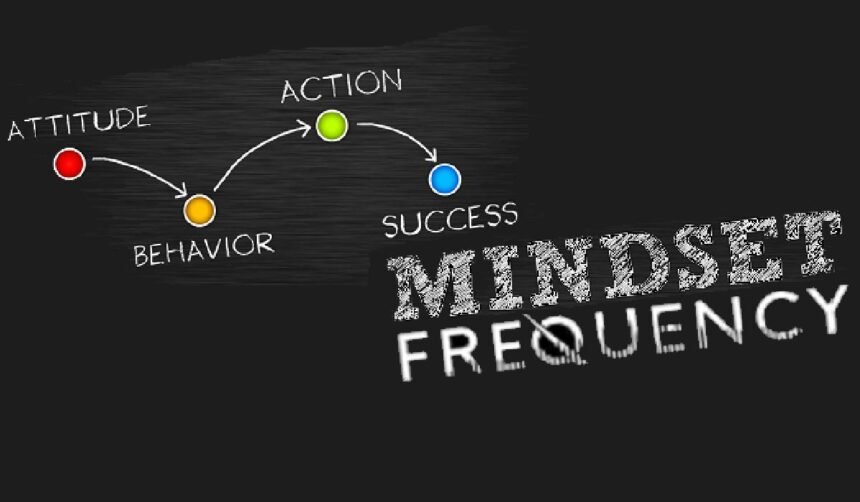What Is Dihward?
Dihward is a powerful, future-facing concept that blends endurance, adaptability, and ethical grounding into one actionable philosophy. It is more than just a word—it’s a principle-based mindset that allows individuals, organizations, and societies to evolve without losing their core values. As the modern world faces constant technological changes, environmental instability, and cultural fragmentation, Dihward offers a framework that embraces growth while staying anchored in integrity.
It plays an important role in multiple domains, including personal development, governance, digital ethics, and branding. If you’re asking “What is Dih ward?”—it is best explained as a guide for how to stay balanced and morally strong in fast-changing environments. Rather than reacting with fear or moving forward blindly, Dih ward encourages thoughtful, ethical adaptation.
Etymology and Origin of the Word “Dihward”
Linguistic Breakdown
The term “Dihward” appears to be a neologism, constructed from two linguistic parts that hint at a deeper philosophical meaning. The prefix “Dih” may symbolize a central point, an inner core, or a foundational force—something solid and unwavering. It has a grounding tone that may be influenced by older linguistic roots, possibly resembling Germanic or Old English elements.
The suffix “ward” is more familiar and widely used in English. It implies direction, protection, or guardianship—as in “forward,” “backward,” or “steward.” Together, “Dih ward” can be interpreted as a directional protector of core values, or a guardian of one’s inner truth moving through complex environments. In today’s language evolution, the creation of such terms is part of a growing trend in modern branding, digital identity, and adaptive ethics.
Historical and Modern Usage
While there is no single origin story, the modern usage of Dih ward began appearing in the early 2020s in academic discussions around behavioral ethics, AI governance, and social resilience. Its popularity has grown through online communities, especially in thought leadership content focused on sustainability, tech ethics, and value-driven change. Scholars and strategists began using “Dihward” as a tool to describe frameworks that resist both chaos and stagnation.
In digital forums and emerging tech spaces, Dih ward has been compared to philosophical constructs that stress balance—like stoicism or pragmatism—but with a future-oriented twist. So if you’re searching for the origin of Dihward or wondering where Dih ward came from, understand that it is rooted in the modern need to stabilize values in uncertain times.
The Core Meaning of Dihward
At its core, Dihward stands for ethical adaptability—the ability to evolve systems, thoughts, and actions without compromising on foundational principles. In practical terms, it is a framework that allows individuals and groups to change as the world changes, but never to the point of losing purpose, identity, or morality. Unlike flexibility alone, which can lead to inconsistency, or resilience alone, which may resist change altogether, Dihward introduces the idea of structured flexibility.
It supports the idea that we must adapt, but do so within the boundaries of integrity. This is captured in its guiding philosophy: “Adaptation without ethics leads to chaos.” This quote underlines that evolution is not enough—it must be tied to accountability and meaning. Dih ward, then, is a disciplined yet open way to engage with complexity.
Why Dihward Matters Today
The importance of Dihward has become more apparent due to the challenges of today’s world. From the rapid growth of artificial intelligence and automation to the environmental crisis and increased cultural division, our global systems are under stress. Traditional models of leadership, decision-making, and identity are breaking down, often replaced by extremes—either rigid traditionalism or reckless progressivism.
Dihward provides a third path that balances these forces. It is a framework for navigating change without falling into moral uncertainty or social fragmentation. In technology, it ensures we don’t lose our ethics while innovating. In climate response, it demands sustainability over quick fixes. In social dialogue, it promotes value-based conversation rather than conflict. These are some of the reasons why Dihward is important and why it’s increasingly seen as the Dih ward solution to the modern world.
Six Core Principles of Dihward
Dihward is not a vague or abstract idea—it’s built on six specific, actionable principles. These can be used to evaluate decisions, policies, behaviors, and systems:
| Principle | Description |
|---|---|
| Value Anchoring | Grounding all decisions in core, non-negotiable ethical beliefs. |
| Structured Flexibility | Being adaptable, but within an intentional and moral framework. |
| Proactive Foresight | Preparing for disruption before it arrives, with moral clarity. |
| Ethical Accountability | Taking responsibility for actions, especially during rapid change. |
| Resource Prudence | Using resources wisely with a long-term view in mind. |
| Collective Synergy | Promoting cooperation and shared progress instead of competition. |
These principles apply to everything from personal life planning to organizational transformation and government policy, making Dih ward a universal structure for resilience.
Applications of Dihward Across Domains
In Governance and Public Policy
Dihward is being embraced by public leaders and policymakers who need to respond to complex crises without sacrificing civil liberties or long-term public trust. During the COVID-19 pandemic, Dihward-like strategies were seen in governments that managed to protect both health and economy without overreaching or losing transparency. In AI surveillance and digital privacy debates, Dihward helps decision-makers balance innovation with human rights.
It supports policies that are flexible enough to address change but structured enough to prevent ethical decay. The emphasis on balancing protection, rights, and sustainability is what makes Dihward valuable in governance today.
In Business and Economics
Businesses increasingly need to pivot quickly while keeping customers, employees, and the environment in mind. Dih Ward provides a way to build strategies that are both agile and accountable. Many companies that survived and thrived during the pandemic, for example, followed Dih ward principles—adjusting supply chains or services while ensuring worker well-being and customer trust. The rise of ESG (Environmental, Social, Governance) frameworks aligns closely with Dih Ward’s ethical structure. Instead of profit-only thinking, companies are now being rewarded for balancing growth with ethical obligations, proving the Dihward mindset works in economics, too.
In Technology and AI Ethics
The tech industry, especially AI, faces growing scrutiny for making decisions that impact billions of lives. Whether it’s recommendation systems, facial recognition, or autonomous vehicles, Dihward helps define how such systems can evolve without becoming dangerous. It supports frameworks where machine learning is not only smart but also morally aligned. Developers using a Dih ward lens build systems that self-audit, include diverse perspectives, and maintain accountability throughout development cycles. “Moral machine learning” is a natural extension of Dih ward in tech.
In Personal Development
On an individual level, Dihward is about becoming mentally and emotionally resilient without losing sight of what matters most. People practicing Dih ward engage in introspection to clarify their core beliefs, then build routines, habits, and responses around them. It might mean journaling, setting boundaries, or making career shifts that align with purpose instead of status. Instead of reacting impulsively, Dihward followers respond ethically and intentionally, even in the face of stress or change. This personal interpretation of Dih ward builds strong inner leadership and calm during uncertainty.
Dihward in Culture and Storytelling
Dihward is also emerging as a symbolic term in storytelling and pop culture. With its mysterious, powerful tone, it fits naturally into fantasy fiction, sci-fi gaming, and mythological narratives. Think of “Dihward” as a name for a wise protector, a digital guardian, or a philosophical movement within a larger fictional world. For example: “Dih ward, Guardian of the Threshold” could be a character who maintains balance between dimensions or keeps chaos at bay. Just like names such as “Dumbledore” or “Geralt” evoke mystery and wisdom, Dih ward fits perfectly in universes that explore morality, power, and transformation.
Dihward as a Brand and Identity
Brand Use Potential
Because of its uniqueness, the term Dihward is ideal for brand creation in emerging industries. Its strong phonetics and thematic richness make it appealing for use in tech startups, fashion, Web3 projects, or even sustainable product lines. For example, companies could adopt names like “Dih ward Labs”, “Dih ward Protocol”, or “The Dihward Collection”. It can communicate intelligence, structure, and originality—all at once.
SEO and Digital Branding Power
From a digital marketing standpoint, Dihward is a low competition keyword. This gives content creators and businesses the chance to dominate search engine rankings early, simply by using clean SEO. Domain names such as dihward.com, dihward.ai, or dihwardverse.io offer untapped potential for authority building. It’s short, brandable, emotionally engaging, and globally accessible—everything a strong brand name should be.
Common Misconceptions About Dihward
-
❌ “It’s anti-change.”
✅ Dihward promotes change—just not reckless change. It insists on ethics first. -
❌ “It’s only philosophical.”
✅ Dihward has real-world use in tech design, law, personal growth, and policy. -
❌ “It doesn’t work with modern tech.”
✅ It actually enhances technology by giving it direction and trustworthiness.
Digital Age Relevance of Dihward
Dihward is particularly relevant in today’s online world. Social media and digital algorithms reward extremes—echo chambers, rage clicks, instant gratification. Dih ward stands against this tide by promoting balanced, thoughtful interaction. For companies going through digital transformation, Dih ward ensures that innovation doesn’t come at the cost of integrity. Whether it’s data use, personalization, or automation, Dihward-centered design puts humans back at the center of technology.
How to Build a Dihward Mindset
If you want to apply Dihward in your life or organization, start with these steps:
-
Define your ethical non-negotiables.
Know what you will never sacrifice, even under pressure. -
Simulate disruption.
Consider scenarios where you’re forced to choose between speed and ethics—then build systems that hold. -
Install feedback loops.
Use tools or practices that check your alignment regularly. -
Align your network.
Surround yourself with individuals and teams who share your values.
The Future of Dihward
Dihward is just beginning to gain momentum. In the coming years, it may be built into leadership development programs, educational curricula, and AI compliance frameworks. Governments may apply it in crisis preparation. Startups may use it to develop sustainable, socially responsible business models. As the need for trust and clarity grows in a chaotic world, Dih ward will be seen not just as a concept—but as a requirement.
Conclusion
Dihward offers a new language for dealing with chaos, complexity, and conflict. It is a survival mindset for the 21st century—teaching us how to grow without losing our roots, how to innovate without erasing our values. It brings structure to change, wisdom to speed, and ethics to power. Dihward isn’t just a word—it’s a movement toward clarity, balance, and purpose in everything we do.
FAQs About Dihward
1. What is Dihward in simple words?
Dihward is a new idea that means staying true to your values while adapting to change. It helps people, businesses, and governments make smart and ethical choices in difficult times.
2. Where did the word Dihward come from?
The word “Dihward” is made from two parts: “Dih,” meaning core or center, and “ward,” meaning protector or direction. It was first used in the 2020s in topics like ethics, technology, and personal growth.
3. Why is Dihward important today?
Dihward is important because it teaches us how to stay strong, act fairly, and adapt during big changes, like with AI, climate issues, and social conflicts.
4. How can I use Dihward in real life?
You can use Dihward by knowing your core values, planning for problems, and staying honest even during change. It helps in work, personal growth, and decision-making.
5. Is Dihward only a theory, or is it used in practice?
Dihward is more than just an idea. It’s already used in leadership, tech design, public policy, and personal habits to support ethical and balanced growth.
You May Read Also: Epson XP-445 Driver Download Epsondrivercenter.com: Full Guide for 2025









